Do you want to know Salesforce alternatives?
Keep on reading!
In the dynamic world of customer relationship management, Salesforce has long been heralded as a juggernaut, but it’s not the only player on the field.
Whether it’s due to budget constraints, the need for a simpler interface, or a desire for specific features, you might find yourself seeking Salesforce alternatives.
Choosing the right CRM platform can be pivotal for your business, impacting everything from customer interaction to sales growth strategy.
As you explore the market, you’ll discover a variety of options tailored to different business needs.
Some platforms might stand out for their collaboration tools, making team coordination seamless.
Others might offer an edge with lead management, ensuring no opportunity slips through the cracks.
Affordable solutions are also available, providing robust services without breaking the bank, while some offer flexible pricing models that scale with your company.
Navigating through the spectrum of CRMs, you’ll encounter solutions that highlight ease of use, advanced automation, and integration capabilities.
These alternatives are designed to align customer service with sales and marketing efforts, providing a comprehensive approach to manage and nurture customer relationships.
As you weigh your options, consider what aligns best with your business goals and processes, and you may find a CRM that not only matches but possibly exceeds your expectations.
Overview of Salesforce Alternatives
Exploring alternatives to Salesforce allows you to find solutions that match your unique business needs, budget constraints, or platform preferences.
Here’s what you need to know about the types of CRM alternatives available to you.
Open-Source CRM Platforms
Open-source CRM platforms offer you full access to the source code, allowing for customization and integration unlike any proprietary system.
With these platforms, you have the freedom to tailor the CRM to fit your specific workflows and processes without being tied to a vendor’s predefined structure.
Web-Based CRM Solutions
Web-based CRM solutions provide the convenience of accessing your customer data from anywhere with an internet connection.
These are hosted on the provider’s servers, which means you’re spared from the complexities of on-premise installations, making it easy to maintain and scale as your business grows.
Enterprise-Level CRM Systems
For more extensive operations, enterprise-level CRM systems deliver extensive features that cater to complex sales processes and a larger user base.
These systems are typically more robust and offer advanced analytics, increased customizability, and scalability to meet the needs of larger organizations.
Popular Salesforce Competitors
When you’re looking for an alternative Customer Relationship Management (CRM) platform to Salesforce, there are several notable options that stand out in the market for their features, performance, and customer satisfaction.
1. Microsoft Dynamics 365
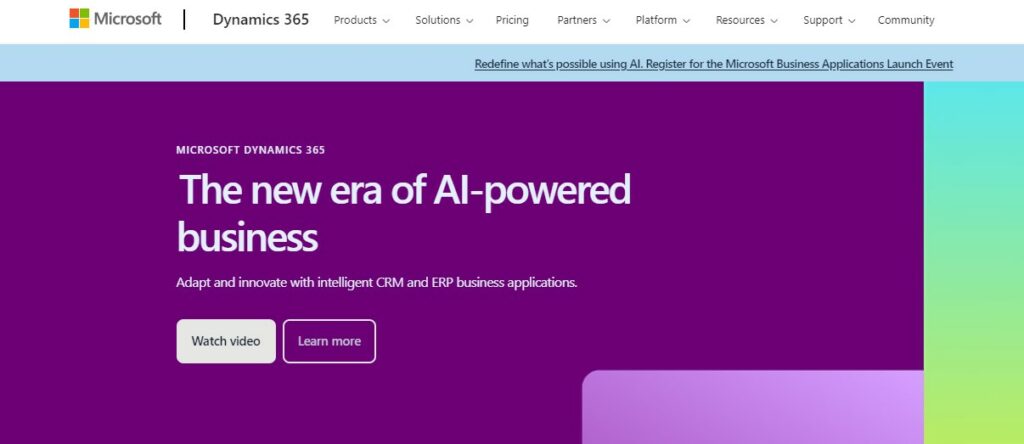
Microsoft Dynamics 365 is a comprehensive CRM solution that integrates with other Microsoft products seamlessly.
It is known for its customizable features and is favored by large organizations that require a scalable CRM system.
You’ll find it especially beneficial if you’re already using other Microsoft services.
2. Oracle NetSuite CRM
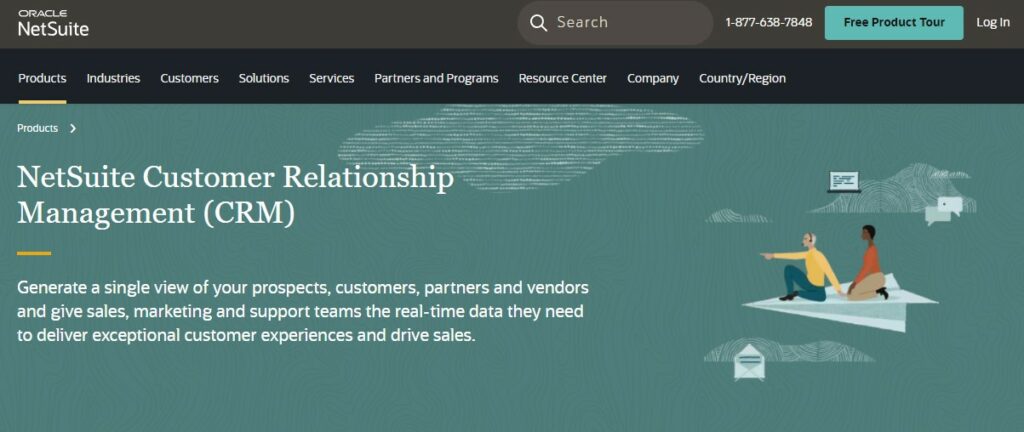
Oracle NetSuite CRM offers a cloud-based approach and a real-time, 360-degree view of your customers.
If you need a CRM that provides in-depth insights into your sales, customer service, and marketing efforts, Oracle NetSuite CRM could be your choice.
3. Zoho CRM
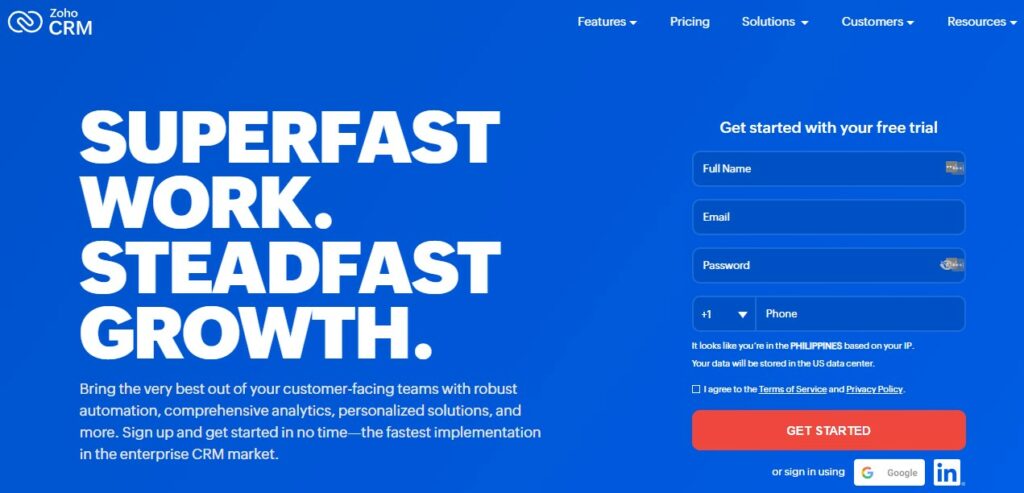
Zoho CRM is popular among small to medium-sized businesses.
It’s an online CRM platform with a user-friendly interface and a robust set of features, including sales automation, lead management, and analytics.
If cost-effectiveness and ease-of-use are your priorities, Zoho CRM might fit your needs perfectly.
Cost-Effective CRM Platforms
When considering a CRM solution that balances functionality with affordability, you’ll find several platforms that deliver substantial value without breaking the bank.
These cost-effective solutions can help streamline your sales and customer management at a fraction of the cost of larger platforms like Salesforce.
4. Bitrix24
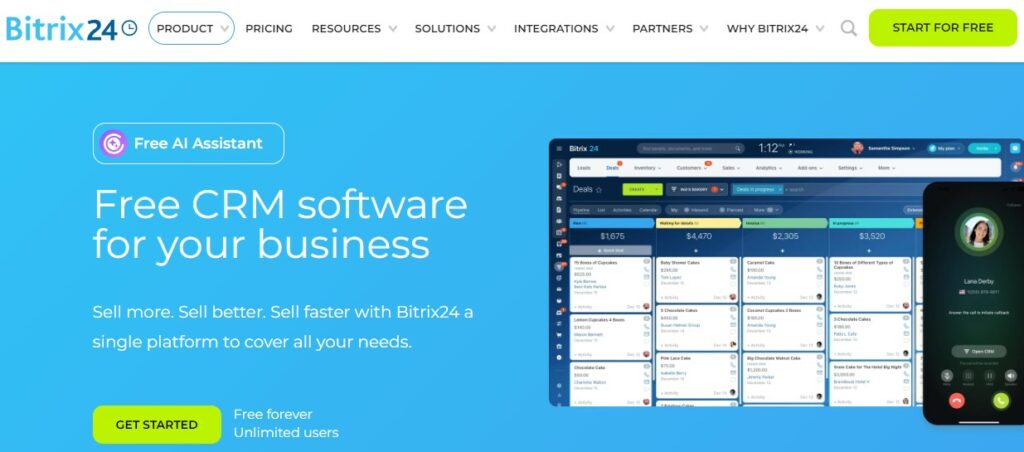
Bitrix24 offers you a comprehensive suite of tools for collaboration, communication, and management of your business.
Pricing is a strong point, with a free tier available and paid plans that start as low as $19 per month for the Start+ plan if you’re a solo entrepreneur looking to scale.
Key Features:
- Free tier available: great for small teams or solo entrepreneurs
- Comprehensive tools: includes CRM, task management, and communication platforms
5. Insightly
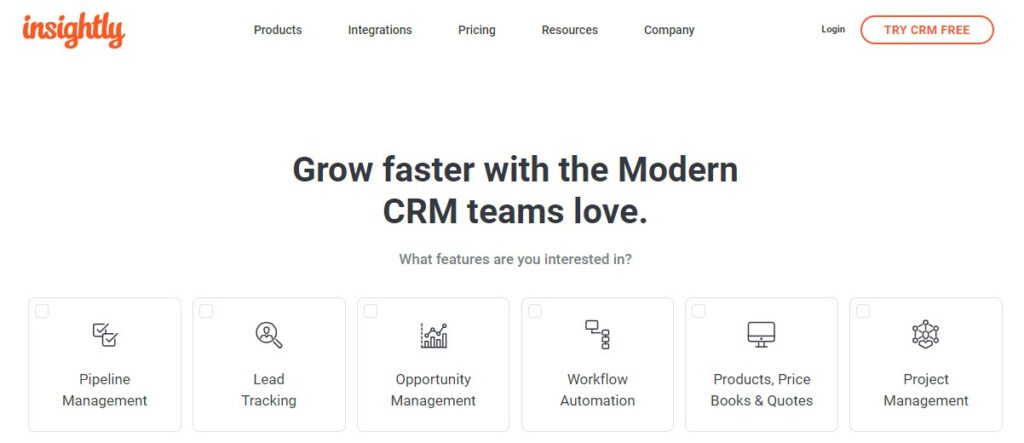
Insightly might be your pick if you’re seeking a user-friendly CRM tailored to growing businesses.
Starting from $29 per user/month, Insightly’s pricing model is based on the number of records and features you require, allowing you to scale as your business does.
Key Features:
- Easy to use: a CRM with a clean interface and simple navigation
- Great for growth: scales with your business needs
6. Agile CRM
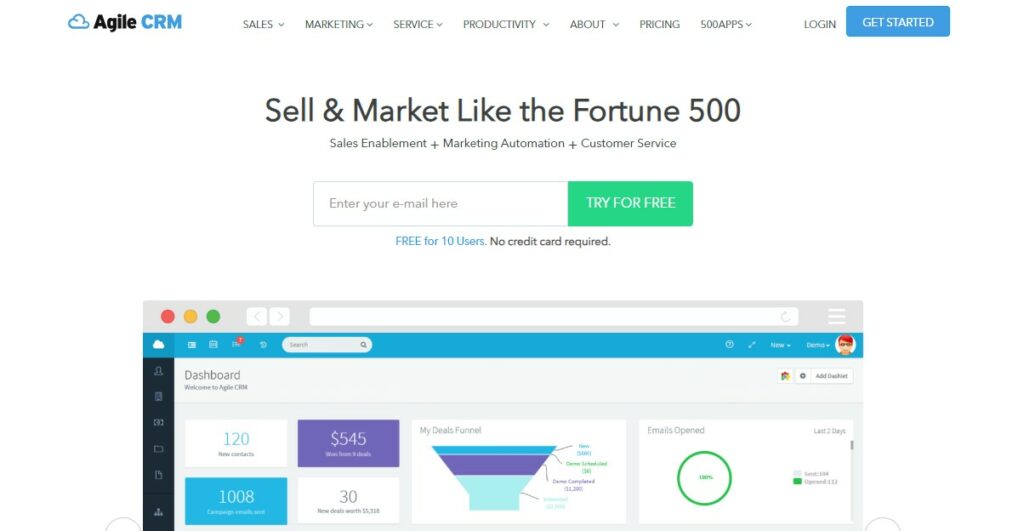
Agile CRM is an all-in-one CRM that not only offers sales and marketing automation but also includes customer service functionalities.
With a free version suitable for small businesses and paid plans beginning from $14.99 per user/month, Agile CRM is a popular Salesforce alternative for budget-conscious users.
Key Features:
- Service suite: combines sales, marketing, and service in one platform
- Budget-friendly: Free version available; affordable premium plans
Features Comparison
In the landscape of Salesforce alternatives, you’ll find a variety of features that cater to different business needs.
Let’s look at how these alternatives compare in key areas such as customization, integration, and analytics.
Customization Capabilities
HubSpot CRM offers a high level of customization, allowing you to tailor properties, sales pipelines, and dashboards to fit your company’s unique processes.
Similarly, Zoho CRM provides a flexible platform where you can create custom modules, fields, and buttons.
- HubSpot: Properties, Sales Pipelines, Dashboards
- Zoho: Custom Modules, Fields, Buttons
Integration Options
HubSpot impresses with its seamless integrations with various tools, including marketing automation, email, and customer service software.
On the other hand, Zoho CRM connects well with the Zoho suite of products and also offers integration with numerous third-party applications.
- HubSpot: Marketing, Email, Customer Service Tools
- Zoho: Zoho Suite, Third-party Apps
Analytics and Reporting
For analytics, HubSpot CRM provides comprehensive reporting features and impressive analytics that help you understand your sales funnel.
Meanwhile, Zoho CRM includes AI-powered analytics and reporting dashboards that give insights into essential sales metrics, both accessible via desktop or mobile.
- HubSpot: Sales Funnel Analytics, Reporting Features
- Zoho: AI-Powered Analytics, Mobile Reporting Dashboards
Choosing the Right CRM
When selecting a CRM, it’s crucial to align the system with your business objectives and growth plans, and ensure it comes with the necessary support.
Evaluating Business Needs
To start, list your key business processes that require management through a CRM.
Consider your sales pipeline, customer interaction points, and reporting needs.
For instance, you might need a CRM with strong lead management capabilities or one that offers advanced analytics.
Remember, the goal is to improve efficiency; therefore, the features of the CRM should support and enhance your business workflows.
Scalability Considerations
As your business grows, your CRM should grow with you.
Look for platforms that offer flexible plans and modular features.
You might begin with basic functions, such as contact management and task tracking.
However, over time, you could require more advanced functions like custom reporting or integration capabilities.
Ensure that transitioning to a more robust plan is straightforward and doesn’t require a labor-intensive data migration process.
Support and Resources
The availability and quality of customer support can significantly impact your CRM experience.
Verify if your chosen CRM provides resources like online tutorials, user communities, or 24/7 customer service.
A CRM with strong training resources can greatly reduce the learning curve for your team and help troubleshoot problems efficiently, ensuring that your business operations run smoothly.
Key Takeaways
When considering alternatives to Salesforce for your business, it’s important to assess various criteria to find the best fit for your needs.
Here are some vital points to help guide your decision:
Pricing: Look for solutions that match your budget.
Some competitors offer plans for as low as $35 per user per month.
Customization and Integration: If your business demands intricate customization and specialized integrations, search for platforms that cater to these requirements.
User Interface: Choose a CRM with a user-friendly interface, making the transition smoother for your team.
Marketing Automation: Some alternatives excel in marketing automation and may provide a better fit if this is a priority for your campaigns.
Global User Base: Considering platforms with a vast user base can be beneficial for community support and proven reliability.
To help you further, here’s a quick comparison snapshot:
| Feature | Salesforce | Alternative 1 | Alternative 2 |
|---|---|---|---|
| Pricing | Higher | Lower | Moderate |
| Customization | Extensive | Limited | High |
| Ease of Use | Intuitive | Basic | User-friendly |
| Marketing Tools | Robust | Differentiated | Advanced |
| Global Presence | Substantial | Growing | Significant |
Remember to weigh these factors in the context of your specific business needs when choosing an alternative to Salesforce.

